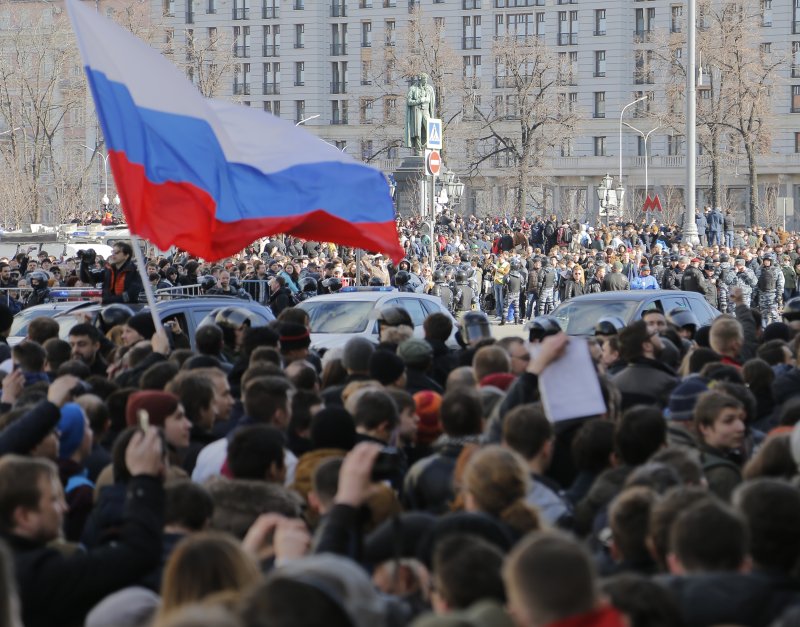A survey from a Russian pollster finds many people are concerned about the high cost of living and issues abroad. File photo by Maxim Shipenkov/EPA
July 17 (UPI) -- With an economy tied strongly to the oil and gas export market, pollsters in Russia said there's mounting concern about inflation and external shocks.
Russia's economy relies heavily on oil and natural gas exports and recent sector weakness, as well as Western sanctions, added to the strains of recession. The International Monetary Fund last week said emerging stability for oil prices meant the Russian economy had returned to growth, and gross domestic product was expected to expand by 1.4 percent next year.
"With adverse demographics, and barring significant structural reforms that lifts productivity, potential growth is likely to stay at around 1.5 percent over the medium term," the IMF's report read. "The main risk to the outlook remains a fall in oil prices."
Central Bank Gov. Elvira Nabiullina said in June the economy was "very close" to the target of reducing inflation from 7 percent to as low as 3 percent, but the time to move close to that benchmark is taking longer than expected. A survey from the Russian Public Opinion Research Center, however, found inflation was still a concern for citizens.
Oleg Chernozub, the pollster's leading consultant, was quoted by Russian news agency Tass as saying data show fears are mounting over the high cost of living and tensions abroad.
"Fears regarding the level of income, unemployment and internal unrest that used to be fairly moderate are also showing unfavorable dynamics," he said. "Society's optimism with respect to overcoming the crisis and maintaining political stability is becoming unsteady."
The IMF said the OPEC-led effort to balance the market has reduced the short-term economic risks for Russia, but the government should look to other forms of income for new sources of growth. The IMF said oil export indicators are still negative for 2017, however, and oil prices should average only $52 per barrel next year, a marginal increase from the IMF's forecast for this year.
Russia's economy lingered in recession last year and the national currency, the ruble, declined in value after crude oil prices dipped below $30 per barrel.
The country is party to an effort led by the Organization of Petroleum Exporting Countries to limit production in order to balance an oversupplied market that's helped prop up crude oil prices. Russia is the largest contributor to that effort among non-member states, pledging to sideline about 300,000 barrels of oil per day.
The Russian Public Opinion Research Center reported a margin of error for its survey of 1,600 people conducted in late June of plus or minus 3.5 percentage points.















